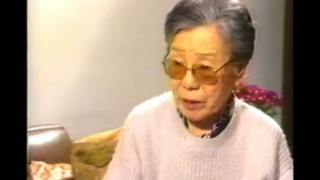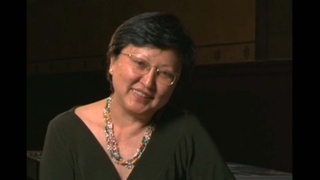Interviews
Winners and losers
So, I think it was 1941, Showa 16th year in July, when at that time the publication of foreign language newspapers was restricted. And because of that, since the overwhelming majority of Japanese couldn’t understand Portuguese, ultimately they were no longer able to understand the news from the Japanese language newspapers. Around that time the Pacific War started and the only news we were able to get from Japan was what we could hear through the shortwave broadcasts. And then when the war ended, people started to debate whether Japan had lost or won. And, it’s unimaginable today, but “winners” (i.e., those who believed Japan won the war) and “losers” (i.e., those who believed Japan had lost the war) began to emerge.
It was really the so-called intelligentsia of Japanese society, the ones who could speak Portuguese or English that understood that Japan had lost the war. But groups like Shindo Renmei labeled those who said that Japan had lost as traitors. And so, thinking about it today, it’s really crazy what happened next. If I remember correctly, 23 people among the so-called “losers” (those that acknowledged Japan had lost the war) were killed and 150 to 160 people were injured. So, the Brazilian government had to get involved and well, they arrested those people and sent them to “Anchieta Island '', an island prison off the northern coast of Sao Paulo State.
On the 100th anniversary in 2008, there were people who came out saying “I killed so and so”. One such person had left a note like that tied around their belly and it’s now on display at the Immigration Museum.
Date: September 19, 2019
Location: California, US
Interviewer: Yoko Nishimura
Contributed by: Watase Media Arts Center, Japanese American National Museum
Explore More Videos

Reflecting on Japanese Americans' response to incarceration
(b. 1925) Draft resister

Japanese American railroad workers are fired following the bombing of Pearl Harbor
(b. 1923) Chick sexer

A racist encounter at a movie theater following the bombing of Pearl Harbor
(b. 1923) Chick sexer

Encountering a train full of Japanese Americans being transported to a concentration camp
(b. 1923) Chick sexer

Reasons for immigrating to Brazil (Japanese)
Issei, Pioneer of women's education in Brazil

Opening a Japanese-style all-girls' school in Brazil (Japanese)
Issei, Pioneer of women's education in Brazil


Joined Japanese Imperial Army during the WWII (Spanish)
(b. 1929) Nisei Argentinean


Brazilian of Japanese descents (Portuguese)
Former Director, Museu Histórico da Imigração Japonesa no Brasil

Japan's impact on the image of Nikkei in Brazil (Portuguese)
Former Director, Museu Histórico da Imigração Japonesa no Brasil

Change in sense of Nikkei Brazilian identity over time (Portuguese)
Former Director, Museu Histórico da Imigração Japonesa no Brasil

Nikkei community concentrated in São Paulo (Portuguese)
Former Director, Museu Histórico da Imigração Japonesa no Brasil

Changing life styles of successive generations (Portuguese)
Former Director, Museu Histórico da Imigração Japonesa no Brasil

Relief fund to support Japanese communities (Japanese)
(1900–1996) The mother of Nikkei Brazilian immigration

Discover Nikkei Updates


June 25 (US) | June 26 (Japan)
Featured Nima:
Stan Kirk
Guest Host:
Yoko Murakawa

See exciting new changes to Discover Nikkei. Find out what’s new and what’s coming soon!
